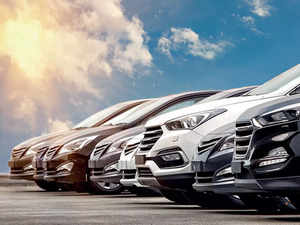
This requirement is likely to become part of regulations under the Bharat New Car Assessment Programme (Bharat NCAP), a senior government official told ET. The plan earlier was not to make it compulsory, but the government now feels it is necessary to ensure that vehicles in India are at par on safety with those in developed countries. While automakers must meet all local safety standards, a lower rating would not lead to any penal action against the manufacturer.
"Getting a 4- or 5-star rating is not mandatory, unlike the norms in certain countries," the official said. "The idea is to have B-NCAP ratings for cars like we have ratings (on energy efficiency) for appliances." This, he said, would enable consumers to make informed decisions while purchasing vehicles.
India ranks at the top globally in road accident-related fatalities and third in injuries, despite accounting for just 1% of the world's vehicle population. As many as 500,000 road accidents occur in the country annually, resulting in 150,000 deaths. Nearly 70% of those who die in road accidents are aged 18-45 years.

India is 5-7 years behind other major other automobile markets in implementing crash test regulations, the official said.
Discussions are underway with industry stakeholders to encourage and ensure vehicles sold in the local market do not have diluted safety standards, the official said. "Our regulations are evolving. We are studying Global-NCAP models in the United States, Europe, Korea, and are engaging with manufacturers before notifying the norms."
While some manufacturers have expressed concerns over the cost implications of enhanced regulations, the government is of the opinion that vehicles today have become aspirational and need to be of global standards.
"Car buyers today do not want to merely commute. For that, they can use public transport. The new-age buyers are millennials, who are conscious of and willing to spend on safety and technology," said the official.
Last month, minister for road transport & highways Nitin Gadkari approved the draft notification to introduce Bharat NCAP. The minister had said star ratings of Indian cars would be crucial not only to ensure structural and passenger safety in cars, but also to increase the export-worthiness of vehicles manufactured in India.
Download The Economic Times News App to get Daily Market Updates & Live Business News.
Download The Economic Times News App to get Daily Market Updates & Live Business News.









 Get Unlimited Access to The Economic Times
Get Unlimited Access to The Economic Times
